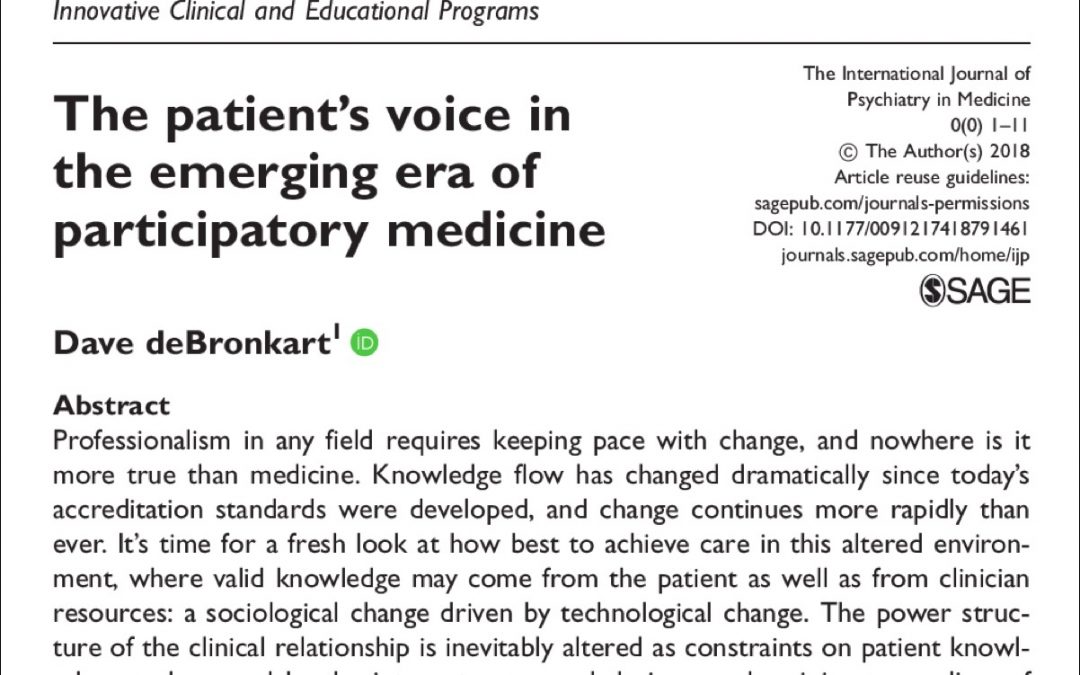The Society for Participatory Medicine advocates for transforming the culture of care, so we watch for signs that the culture is changing. A newly released peer-reviewed article hints at progress: formally introducing patient perspectives into not just the practice of medicine but into the framework of competencies by which new physicians are measured and certified.
It’s the lead article of an annual special issue of International Journal of Psychiatry in Medicine (IJPM). The special issue each year is devoted to the previous fall’s Forum for Behavioral Sciences in Family Medicine. SPM co-founder Dave deBronkart gave a well-received closing speech at the 2017 forum and was asked to contribute the lead article for the issue.
“The power structure of the clinical relationship is inevitably altered,” the article says, “as constraints on patient knowledge are loosened by the internet, apps, and devices,” continuing that this undermines the “paradigm of patients as uninformed recipients of care based on a one-way flow of wisdom from providers.” This is aligned with SPM’s description of patients shifting “from mere passengers to active drivers” of their care, with physicians welcoming the new behavior.
To achieve the vision of physicians welcoming e-patients, vs saying “stay off the internet,” “new standard must be to teach clinicians to recognize, welcome, and work with empowered ‘e-patients’ in the new model of participatory medicine.”
The article speaks specifically about competencies and milestones for Family Medicine (PDF), particularly pointing to such skills as shared decision making, patient autonomy, and self-management. Such certification of residents is done by ACGME, the Accreditation Council for Graduate Medical Education, in dozens of specialities.
SPM board member Peter Elias, MD says that the family medicine residents he taught as a volunteer faculty preceptor were eager to practice what he then called “collaborative medicine” and quickly adapted to this approach when taught and supported.
Accessing article content
The abstract of the article, “The patient’s voice in the emerging era of participatory medicine,” is here. The full text is behind a paywall, but deBronkart invites SPM members to email him for a PDF.







Recent Comments